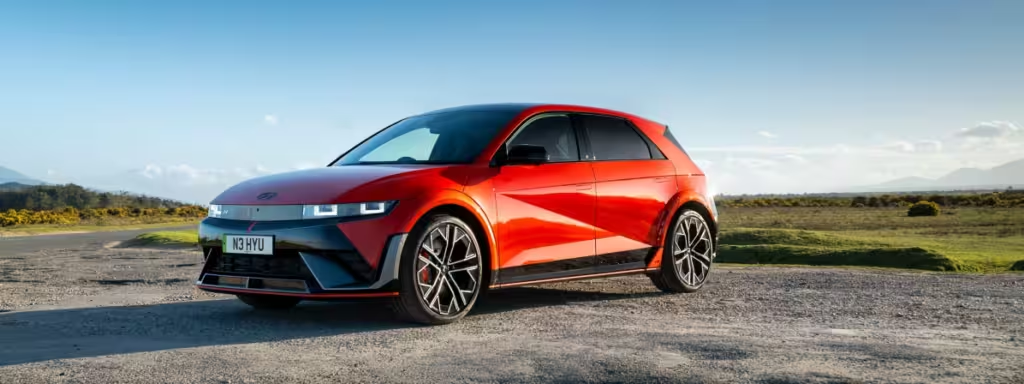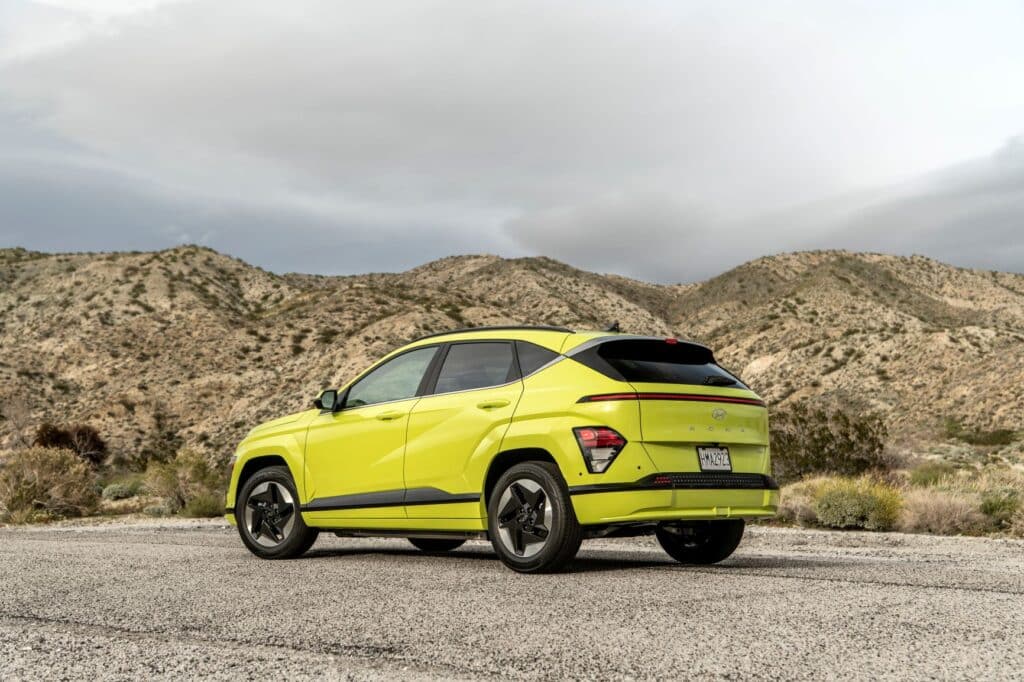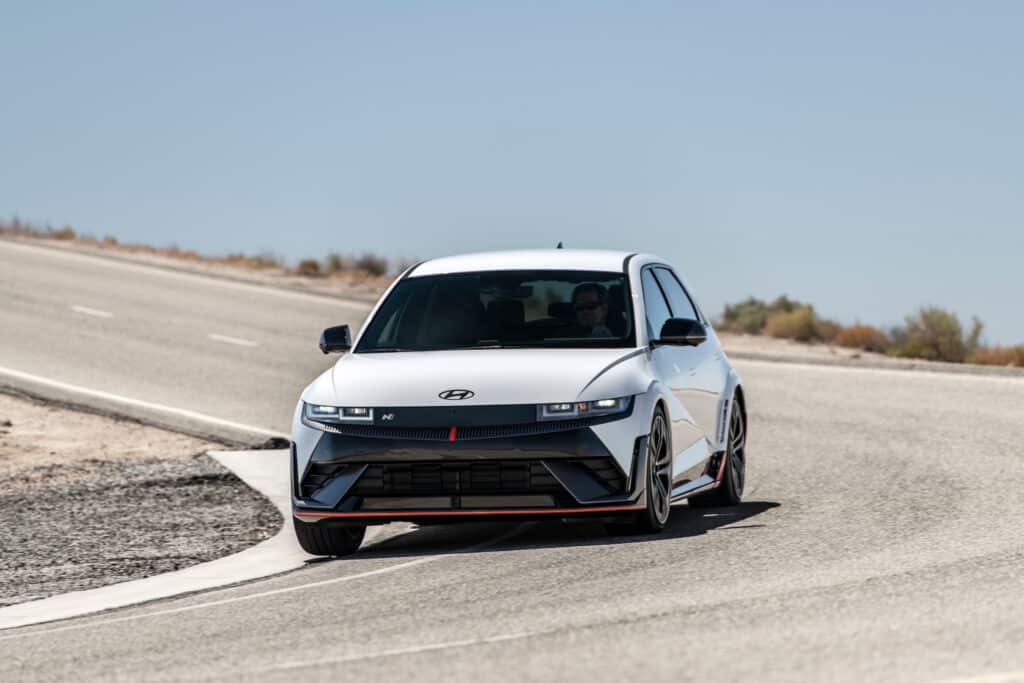Hyundai Group Dominates Edmunds’ List of Fastest-Charging EVs
EVs are quickly gaining traction among drivers around the world and in the United States. Reuters reported that global sales of fully electric and plug-in hybrid vehicles rose 35% in October 2024 from the same month last year.
However, many barriers to EV adoption remain. Some of those are their slower charging speeds compared to the short time needed for gas vehicle refueling. When discussing gasoline, lower fuel costs enjoyed by EVs compared to gas vehicles is a benefit, as Stable Auto reported. Edmunds tested which EVs charge the fastest, to help consumers in their decisions. Edmunds.com Inc. is an American online resource for automotive inventory and information, including expert car reviews based on extensive testing. Hyundai group’s EVs stood out as the fastest-charging, as we show below.
EVs are a Transformative Solution
Electric vehicles (EVs) are a transformative solution to reducing reliance on fossil fuels and addressing environmental challenges such as CO2 emissions. By replacing gasoline and diesel with grid-based electricity, EVs offer significant advantages over internal combustion engine vehicles (ICE). EVs contribute to lower greenhouse gas emissions, particularly when powered by electricity generated from renewable sources, and provide economic benefits through reduced fuel and maintenance costs. EVs also enhance energy security by diversifying energy sources and decreasing dependency on imported fossil fuels. Furthermore, they support the integration of renewable energy into the power grid, with technologies like vehicle-to-grid (V2G) enabling EVs to act as mobile energy storage units that help stabilize the grid and optimize renewable energy use. These attributes make EVs an essential component of efforts to combat climate change and transition to a sustainable energy future. On top of all that, EVs are more cost-effective in the long run than ICE vehicles.
A Driving Force Behind EV Adoption: Saving on Fuel Costs
Electric vehicles (EVs) have taken center stage in the evolution of transportation, and the reasons behind their rising popularity are as diverse as the drivers themselves. However, when it comes to what motivates most people to make the switch, one factor consistently stands out: the desire to save on fuel costs.
For decades, traditional internal combustion engine vehicles have been synonymous with fluctuating gas prices and costly refueling. In contrast, EVs present a refreshing alternative, powered by electricity that is not only more stable in price but always significantly cheaper. For many prospective buyers, the financial relief of lower fueling expenses is the tipping point in deciding to transition to an EV.

Stable Auto’s EV Charging Equivalent vs. Gasoline Price by State (Q2 2024)
Electric vehicles (EVs) are proving to be a cost-effective alternative to traditional internal combustion engine (ICE) vehicles, particularly when it comes to fueling. According to Stable Auto’s EV Charging Equivalent vs. Gasoline Price by State (Q2 ’24), charging an EV costs less than fueling an ICE vehicle in every state across the U.S. On average, EV drivers save about 51% on fueling costs compared to ICE drivers, with the savings varying between 33% and 71% depending on the state.
These savings translate into tangible economic benefits. The average cost of EV charging equates to gasoline priced at $1.66 per gallon, nearly $2.00 less than the national average gasoline price during the same period. In states like Washington, where abundant hydropower keeps electricity costs low, EV drivers enjoy the highest savings, equivalent to $2.70 per gallon, or a 64% discount. Conversely, in Louisiana, where electricity rates are higher and gasoline prices lower, EV drivers still save significantly, with costs amounting to $1.04 less per gallon, representing a 34% discount.
This comparison highlights the broader financial advantages of EV ownership. In addition to reducing dependence on volatile gasoline prices, EVs provide a stable and predictable alternative for fueling, especially in regions with access to affordable renewable energy. Over time, these cost benefits amplify the appeal of EVs, making them an attractive choice not only for their environmental benefits but also for their ability to lower transportation expenses.

The Challenge of Time: Charging an EV vs. Refueling at the Pump
As electric vehicles (EVs) gain popularity, their benefits—ranging from environmental advantages to long-term cost savings—are reshaping transportation. Yet, despite these advantages, one issue continues to loom large for prospective buyers: the time it takes to charge an EV compared to refueling a gas-powered vehicle.
For many drivers, the speed and convenience of refueling at a gas station, often completed in under five minutes, set a high standard for efficiency. In contrast, EV charging times can range from 20 minutes at a high-speed DC fast charger to several hours on a standard Level 2 charger. This disparity raises concerns about convenience, particularly for drivers accustomed to the quick refueling process of traditional internal combustion engine vehicles.
The challenge becomes even more pronounced during long trips. While gas stations are ubiquitous and allow drivers to get back on the road almost immediately, EV drivers often need to plan routes around charging stations and account for longer wait times. Even with rapid advancements in charging technology, the need for 20–30 minutes to gain a substantial charge at the fastest public chargers remains a noticeable difference.
Additionally, charging speed is influenced by several variables, including the vehicle’s battery capacity, the charging station’s power output, and external factors like temperature. This variability adds to the perception that charging is less reliable than a quick stop at the gas pump.
For now, however, the longer time required for EV charging compared to refueling at the gas pump remains a key challenge to overcome. As infrastructure improves and technology advances, the convenience gap is expected to narrow, making EVs an even more viable option for all drivers. Until then, addressing this concern with honest communication and innovative solutions will be critical to accelerating the shift to electric transportation.
The good news is that the industry is tackling this issue head-on. Investments in ultra-fast charging technology aim to reduce charging times significantly, with some manufacturers targeting as little as 10 minutes for a substantial charge.

Edmunds’ EV Charging Test: The Definitive Guide to Fast-charging Speeds
One of the most critical aspects of EV ownership—charging speed—has often lacked clear and consistent benchmarks. Historically, automakers have highlighted charging metrics that best showcase their vehicles, leaving potential buyers without a reliable standard to compare performance.
The Edmunds EV Charging Test addresses this gap by introducing an independent and empirical measure of EV charging speeds based on real-world conditions. This groundbreaking test offers a straightforward metric that answers a vital question for drivers: how long will you need to stop and charge during a road trip?
Rather than relying on manufacturer-provided data, the test evaluates how many miles of range an EV can add per hour of charging at a fast charger. Additionally, Edmunds provides a secondary, relatable figure: the average time required to add 100 miles of range. These metrics not only simplify the comparison process for buyers but also ensure transparency in understanding an EV’s performance at the charger.
This shift toward standardized, real-world testing is especially valuable for families planning long journeys or anyone who relies on fast chargers during regular travel. Knowing how quickly a vehicle can add range helps drivers make informed decisions, factoring in both the convenience of charging and the practicality of trip planning.
By establishing a clear and impartial benchmark, the Edmunds EV Charging Test empowers consumers to navigate the rapidly evolving EV market with confidence. As the industry moves forward, this approach sets the stage for greater accountability among automakers and more realistic expectations for EV drivers everywhere.
Edmunds’ 8 Fastest-Charging EVs
On the Edmunds EV Charging Test, published 11/15/2023, updated 5/9/2024, these EVs made the top 8. Hyundai group owns Kia, so the Hyundai Group won 5 out of the top 8.
#1 2024 Hyundai Ioniq 6 Limited RWD (single motor): 868 mi/hr
#2 2022 Kia EV6 Wind RWD: 769 mi/hr
#3 2024 Hyundai Ioniq 6 Limited AWD (dual motor): 764 mi/hr
#4 2020 Porsche Taycan 4S: 690 mi/hr
#5 2022 Kia EV6 GT Line: 678 mi/hr
#6 2022 Hyundai Ioniq 5 dual motor: 673 mi/hr
#7 2022 Mercedes-Benz EQS: 450+ 593 mi/hr
#8 2023 Genesis Electrified G80: 588 mi/hr
EVinfo.net strongly recommends all of Hyundai’s and Kia’s EVs. (EVinfo.net does not accept any vehicle OEMs as clients, to remain neutral in our reporting.)

Electric Vehicle Marketing Consultant, Writer and Editor. Publisher EVinfo.net.
Services